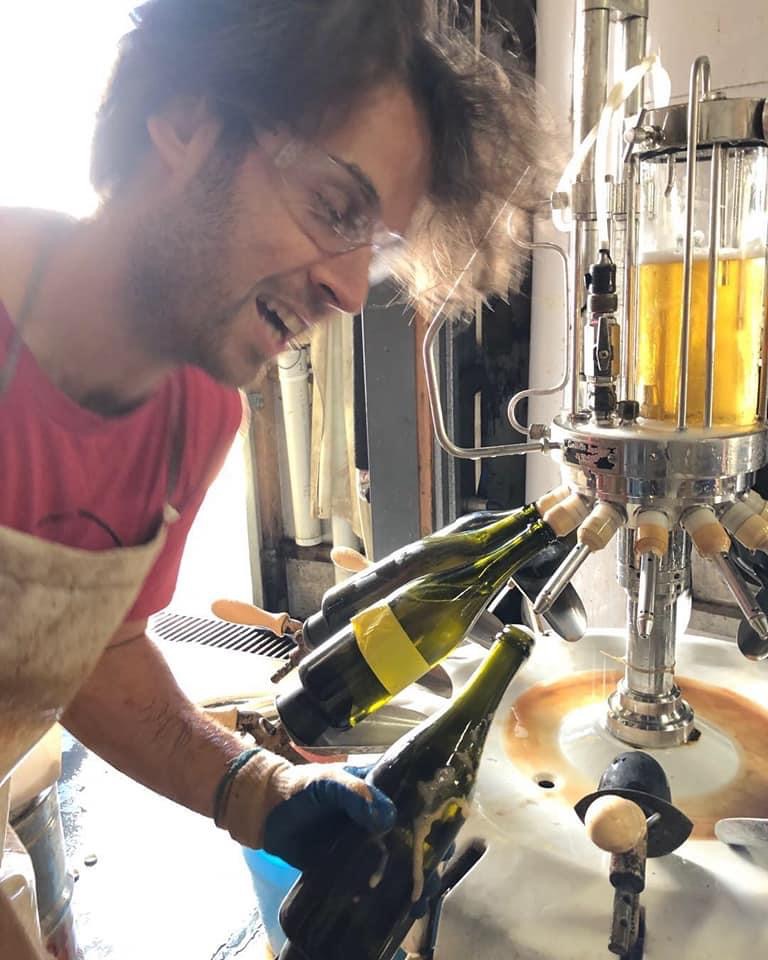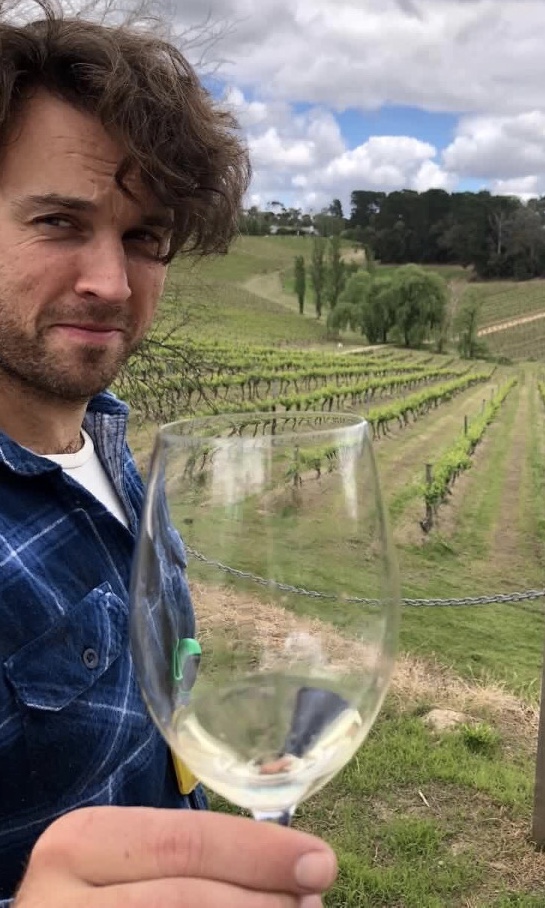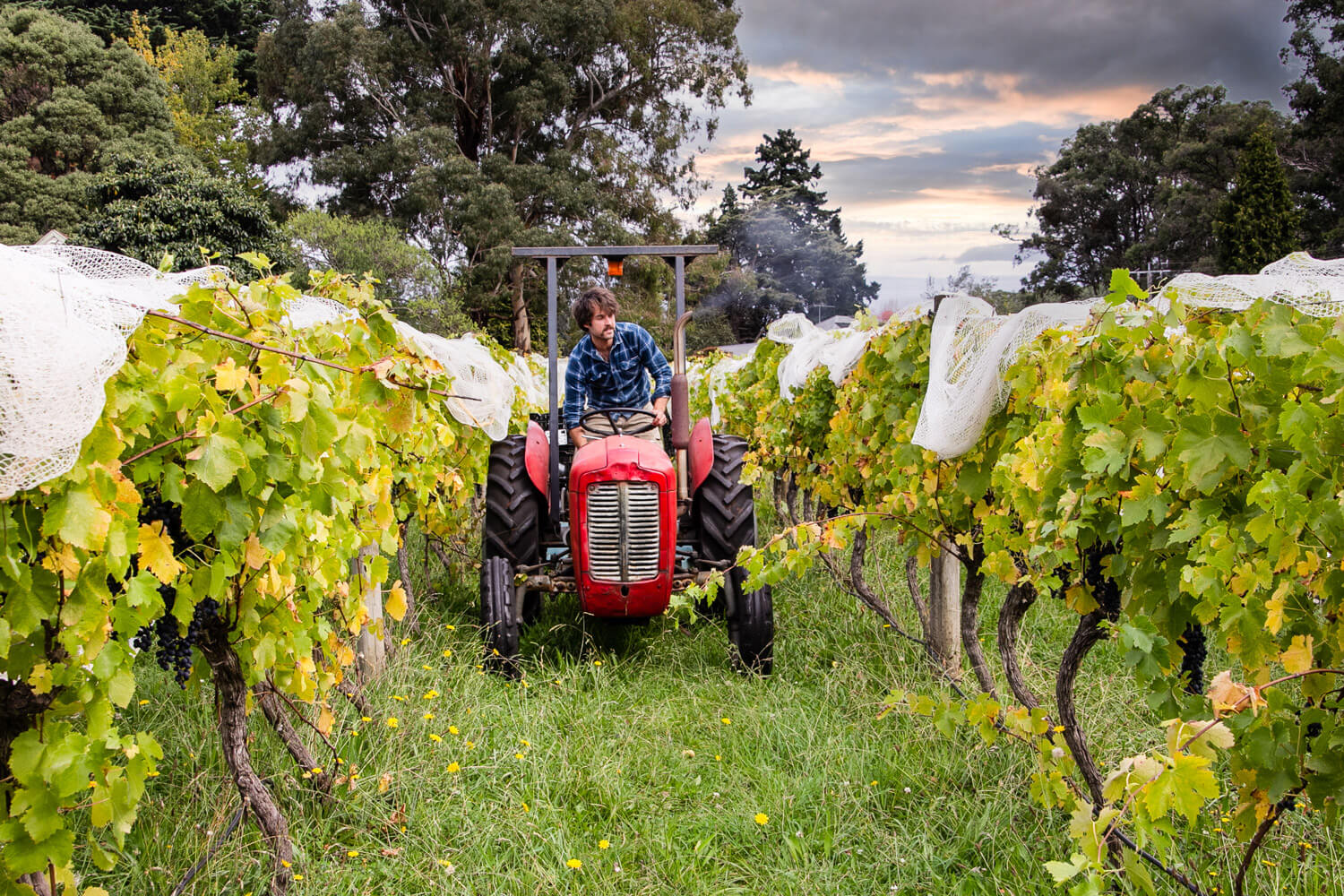Stuart Dudine’s Alkimi Wines is built around his passion for both the Yarra Valley and Rhône varieties, with an exploration of marsanne and syrah at the core of his range, but the Yarra stars of chardonnay and pinot noir get plenty of airtime, too. Dudine’s wines are always pitched to the elegant end of the spectrum, and he employs natural yeast and no additions except sulphur, with no fining and only occasional filtration, while in his No Additions range, not even sulphur gets a guernsey.
“I always wanted to start my own wine business, because I feel I am a self-driven person and very passionate about my industry,” says Dudine. “After coming back from the 2013 vintage in Côte-Rôtie, I began to believe I had what it took to put it all together. It is harder than I ever imagined, but fun to be doing it.”
That Rhône trip also crystallised exactly what path he wanted to follow. “My main vision is to feature high-quality wines from Rhône Valley varieties in the Yarra Valley,” he says. “My end goal is setting up a sustainable wine business that not only challenges conventional thinking generally, but also contributes to putting some alternate varieties on the map.”
Dudine graduated with a wine science degree from Charles Sturt University in 2010, with his very first vintage coming in 2006. Stints at Henschke, Yarra Yering, Mac Forbes and overseas, in Piedmont, Austria’s Wachau and importantly the Rhône Valley – both north, in Côte-Rôtie, and south, in Châteauneuf-du-Pape – have had a big impact on his outlook and helped the direction he took when making his first Alkimi wines, which were made from the 2014 vintage, just a few months after Dudine returned from France.
All the wines are un-fined, naturally stabilised and mostly unfiltered, with Dudine noting that he likes to keep things “technologically very simple” in the winery. “I prefer to sculpt wines using the magic of great sites, good picking decisions and very diligent winemaking. I also have a range of wines called No Additions. This range is exactly that: no additions are made to these wines, including no sulphur dioxide.”
While Dudine sources fruit from various vineyards across the Yarra Valley – plus a foray into Heathcote – he also manages some vines, too. “I have rejuvenated a small block of syrah in the Yarra,” he says. “It was on the brink of being pulled out. I have reworked every vine and I follow a number of organic practices, which means the ecology of the vineyard both below and above the ground is always improving. These changes have improved vine health over the last four years allowed me to push the vines further in their ripening. I am now seeing potential to create a high-quality red wine from the vineyard. Time will tell, but I’m hopeful for another interesting single vineyard wine.”
While the Alkimi wines are centred around the Rhône varieties syrah and marsanne from the Yarra Valley, with a grenache coming off Cambrian soils in Heathcote, it is not surprising chardonnay and pinot noir also feature prominently in the range. “The cool Yarra climate is close to perfect for growing varieties like pinot and chardonnay,” says Dudine.
“Growing Rhône Valley varieties can be a little trickier to get right. If the season is on the cold side, the grapes have to hang for longer, which poses a risk for disease and low ripeness. If diligent vineyard management is not practiced, it will be a disaster. I have found best practice is to always be one step ahead of what the vineyard and the weather is doing to prevent any potential issues. I have learnt over the years to adapt my wines, wine styles and ambitions on the spot to make the best of any situation.”
Dudine regards himself as somewhat of a risk-taker in his winemaking, taking “calculated risks in pursuit of making better wine – some things work, some things don’t. I think due to some winemaking techniques, my wines tend to not be as polished as some wines out there. So, while they are familiar, they have a few extra edges to them. Also, as I typically enjoy drinking more refined and lower alcohol wines, I push my wines into that particular spectrum.”





